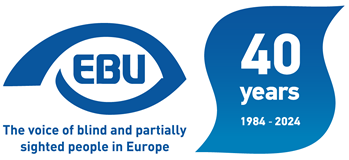The Russian Federation has joined the Marrakesh Treaty to Facilitate Access to Published Works for Persons who are blind, partially sighted or Otherwise Print Disabled - and ratified it in 2018.
In this regard, the Government of the Russian Federation in cooperation with the Federal Assembly of the Russian Federation have taken a number of measures to bring Russian legislation into compliance with this Treaty. This activity was carried out jointly with the Ministry of Culture of the Russian Federation and other organizations involved, including the All Russia Association of the Blind (VOS). VOS has transferred the text of the Treaty into special audio formats accessible to the visually impaired to acquaint them with the document.
The Treaty requires that Contracting Parties provide a standard set of copyright restrictions and exceptions so that published works can be reproduced, distributed and made available to the public in formats accessible to visually impaired persons, and make it possible the cross-border exchange of these works between the organizations that serve these beneficiaries.
In particular, the relevant changes and additions were made to the Civil Code of the Russian Federation, namely, Article N. 1274 "The Free use of the work for information, scientific, educational or cultural purposes".
Thus, paragraph 2 of this article was stated as follows:
2. Creation of copies of legally published works in formats intended exclusively for use by blind and partially sighted people (relief-point font and other special methods) (special formats), as well as reproduction and distribution of such copies for non-commercial purposes are allowed without the consent of the author or other exclusive rights owner and without remuneration, but with the obligatory indication of the author's name, the work of which is used, and indication of the source of borrowing.
“Libraries can provide blind and partially sighted people with copies of the works created in special formats for temporary use free of charge with possibility to take away, and by providing access to them through information and telecommunications networks. A list of special formats, as well as a list of libraries providing access through information and telecommunication networks to copies of works created in special formats, and the procedure for providing such access are determined by the Government of the Russian Federation.
Any further reproduction or bringing to the public of another copy of the work intended exclusively for use by the blind and partially sighted is not allowed“.
In addition, the Russian Government decree
“On the approval of a list of formats intended exclusively for use by the blind and partially sighted (relief-point font and other special methods), a list of libraries providing blind and visually impaired people with access through information and telecommunication networks to copies of works created in formats intended exclusively for use by the visually impaired (relief-point font and other special methods), and the Rules for the provision by libraries of access for the blind and partially sighted to copies of works created in formats intended exclusively for their use (relief-dotted type and other special methods), through information and telecommunication networks” was adopted.
The Decree has approved the following special formats:
• the Braille type, intended for writing and reading for the blind, in print and digital formats.
• “Talking” books written in digital crypto-protected audio format for listening on a tifloflashplayer.
• Bold graphic materials: maps, diagrams, drawings, paintings.
Thanks to the measures taken to implement the Marrakesh Treaty, the access of the blind and partially sighted to information has been simplified and expanded, which contributes to the socio-cultural rehabilitation and integration of the Russian visually impaired people into contemporary society.
By Mr Vadim Oussik, Expert, LOGOS VOS printing and publishing center

